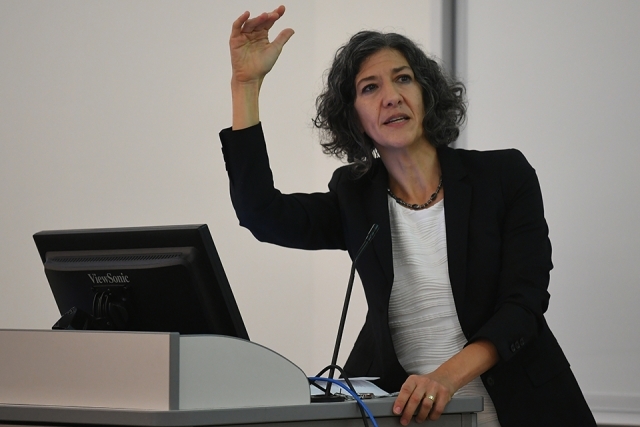
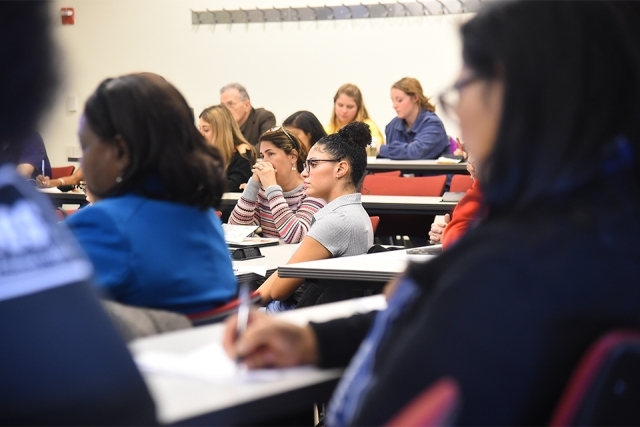
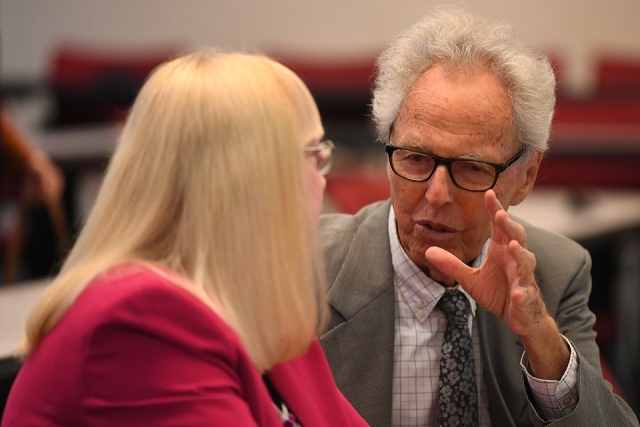
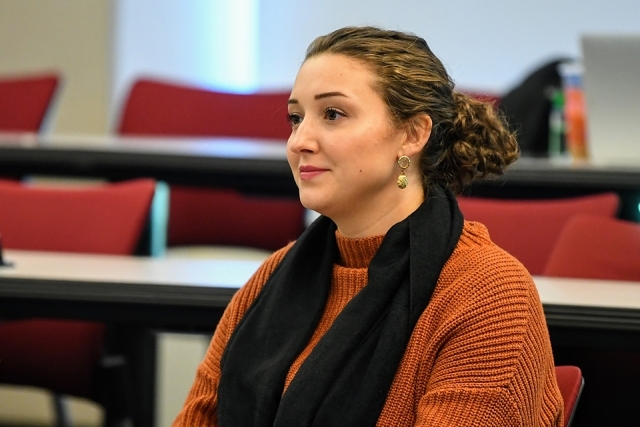
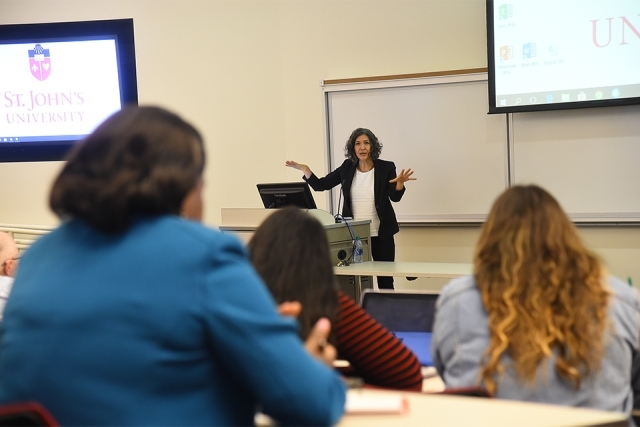
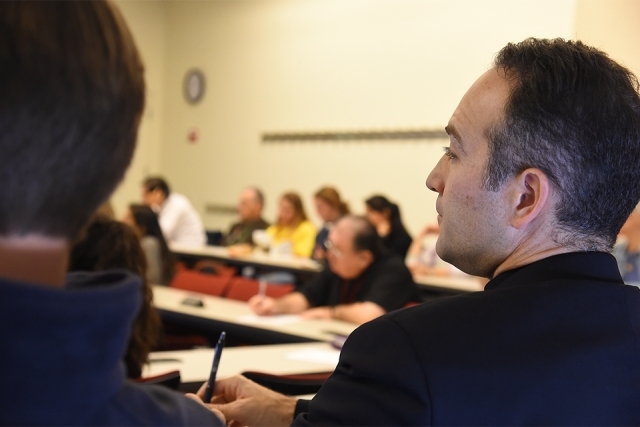
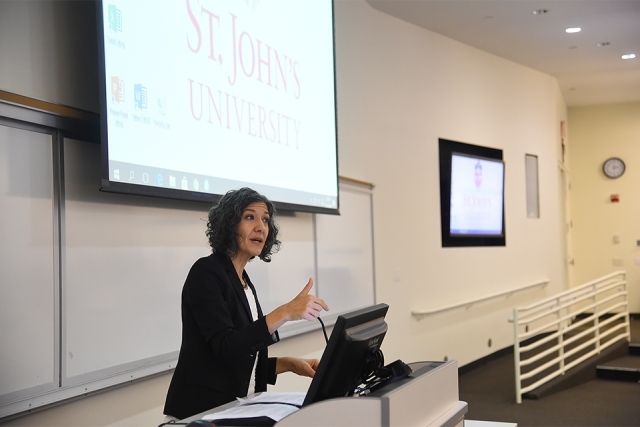
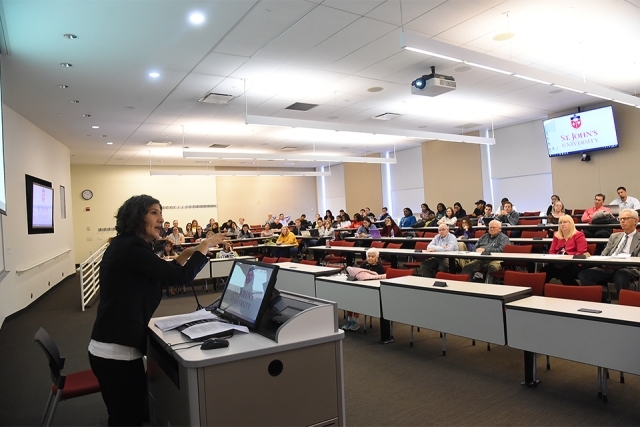
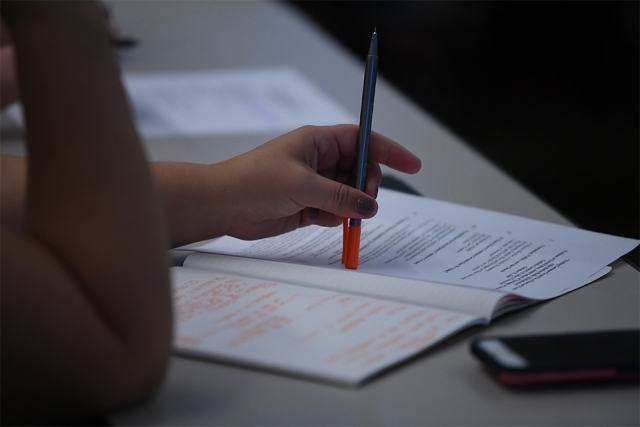
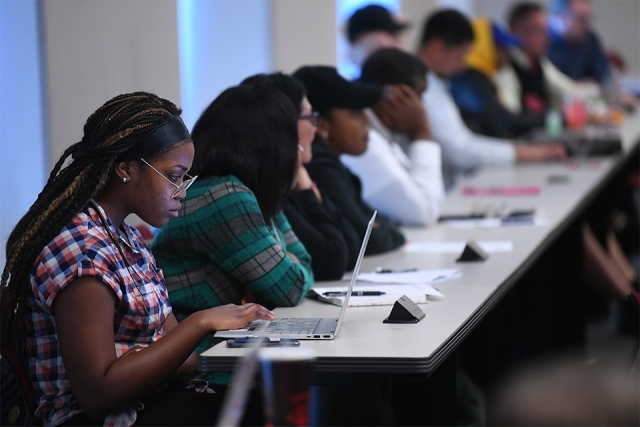
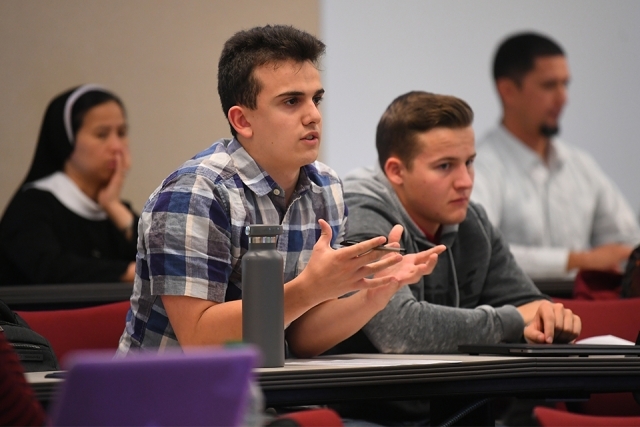
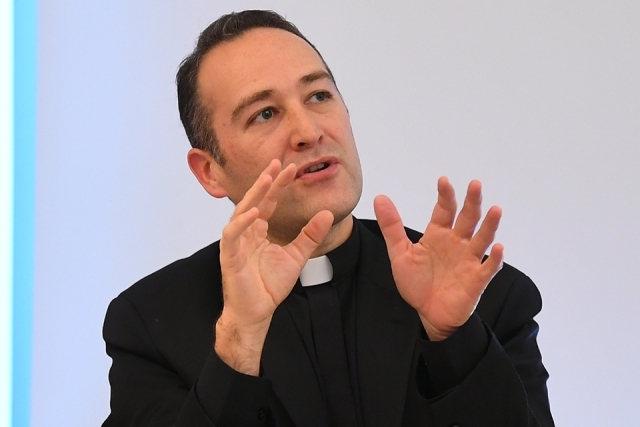
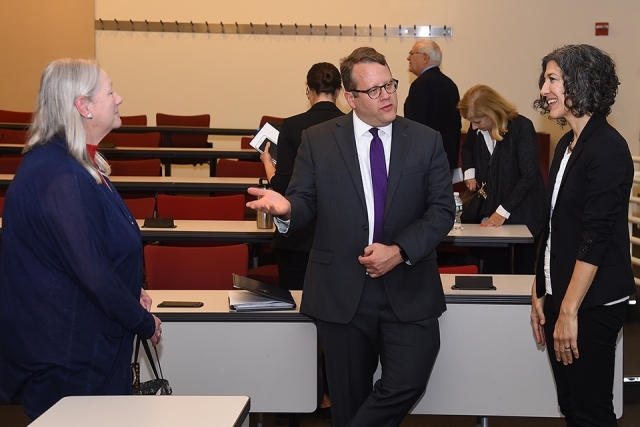
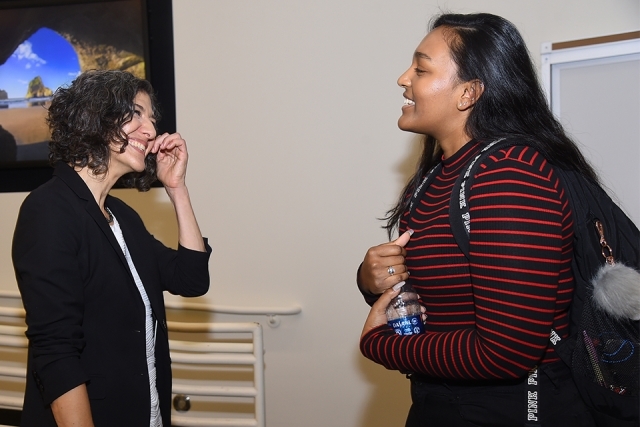














In a world so divided, it is difficult for those with opposing viewpoints to engage without a conversation deteriorating into a shouting match. And yet, however challenging, common ground can be achieved between diametrically opposed sides.
Julie Hanlon Rubio, Ph.D., Professor of Social Ethics at Santa Clara University’s Jesuit School of Theology, shared that message during her lecture, “Finding Common Ground in a Polarized World,” which was held in the D’Angelo Center on St. John’s University’s Queens, NY, campus on October 21.
Dr. Rubio’s talk was part of St. John’s College of Liberal Arts and Sciences’ annual Catholic Lecture Series. Prior to the lecture, Dr. Rubio met with several students in the University’s Catholic Scholars program for an informal discussion on overcoming polarization in the Church on issues of poverty reduction.
Dr. Rubio is the recipient of a 2011 Catholic Press Association Award for her book, Family Ethics: Practices for Christians, which took first place in the Family Life category. Her articles have been published in periodicals such as The National Catholic Reporter and America. Her lecture topic grew from her most recent book, Hope for Common Ground: Mediating the Personal and the Political in a Divided Church, which won the award for Best Book from the College Theology Society in 2017.
Pointing to a dinner she was invited to while a graduate student at Harvard University, Dr. Rubio recalled that, during the meal, people on both sides of a contentious issue had an opportunity to dialogue and share the reasons for their beliefs. “They were invited to tell their stories, and there was a chance to ask questions—not debate questions,” she stressed. “That was really formative for me. It proved that this was possible.”
Catholic universities imbue their students with a capacity to build bridges, Dr. Rubio observed. She added, “There is something about telling stories that is very Catholic. It takes things out of the debate mode.”
She asserted that there is a pervasive belief that disagreement on ethics, politics, or religion means achieving common ground, a notion not popular in today’s world, is impossible. That tension is not centered around one topic, “but is part of an ongoing culture war between orthodox and progressive tendencies,” which cuts down the middle of all religious and secular traditions. “These divisions have to do with the way we see the world, and the way we understand truth and fundamental concepts, like freedom and justice.”
“Argument is a good thing,” she asserted. “When you cannot argue with somebody, it means you believe you have no ground to stand on together. But if we say we can argue together in public, then we have to believe there are certain truths, and if we can get there, that is good.”
Dr. Rubio noted that much can be accomplished in “the space between the personal and the political.” She added that often people avoid conversation on sensitive topics in the name of tolerance, and nothing is accomplished.
The Catholic Scholars who spoke to Dr. Rubio all came away with tools and strategies for handling opposing viewpoints in a civil and respectful manner. Accounting major Matthew Halpin felt like he can have a difficult conversation with the right group. “Having a diverse mix of people sets the tone and the mood for the conversation,” he observed.
Theresa Vogel, an English major and President of the University’s chapter of Students for Life, was impressed by Dr. Rubio’s dedication to the notion of common ground. “Usually you find someone who is passionate about one issue or another, but here we have someone who is passionate about the middle ground, and finding ways we can engage positively.”
Fashion Studies major Christina Zouvelos stressed that having these conversations in the campus setting gives students the tools to engage more positively in the “real world.” After talking to Dr. Rubio, Audiology major Julia Bonanno felt better equipped to listen when she hears a dissenting opinion. “It was an eye-opening discussion about how to approach difficult conversations.”
